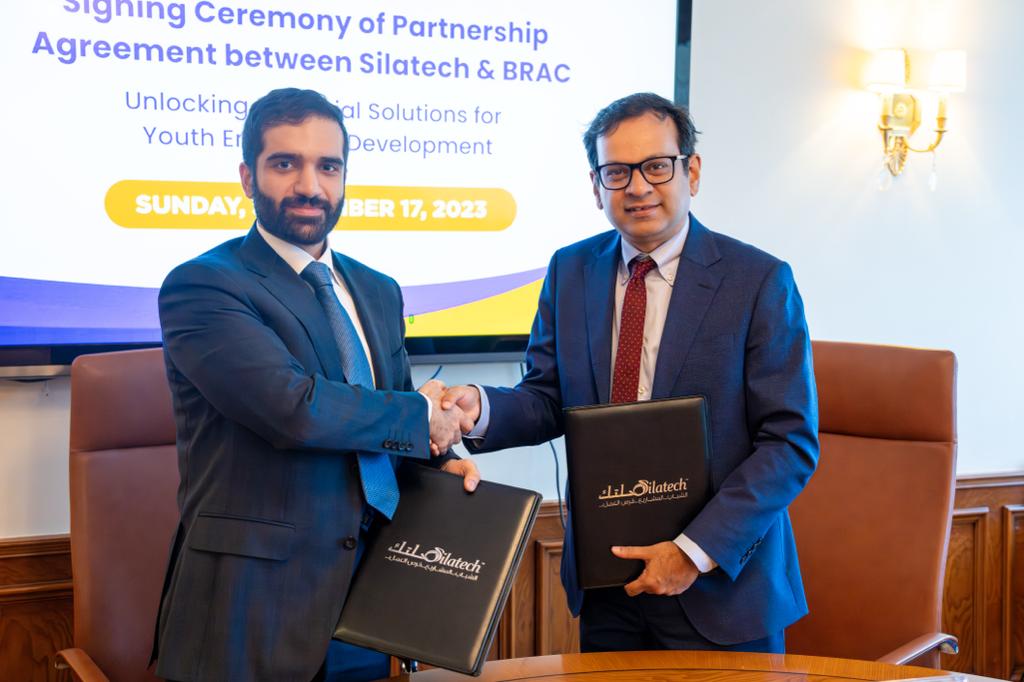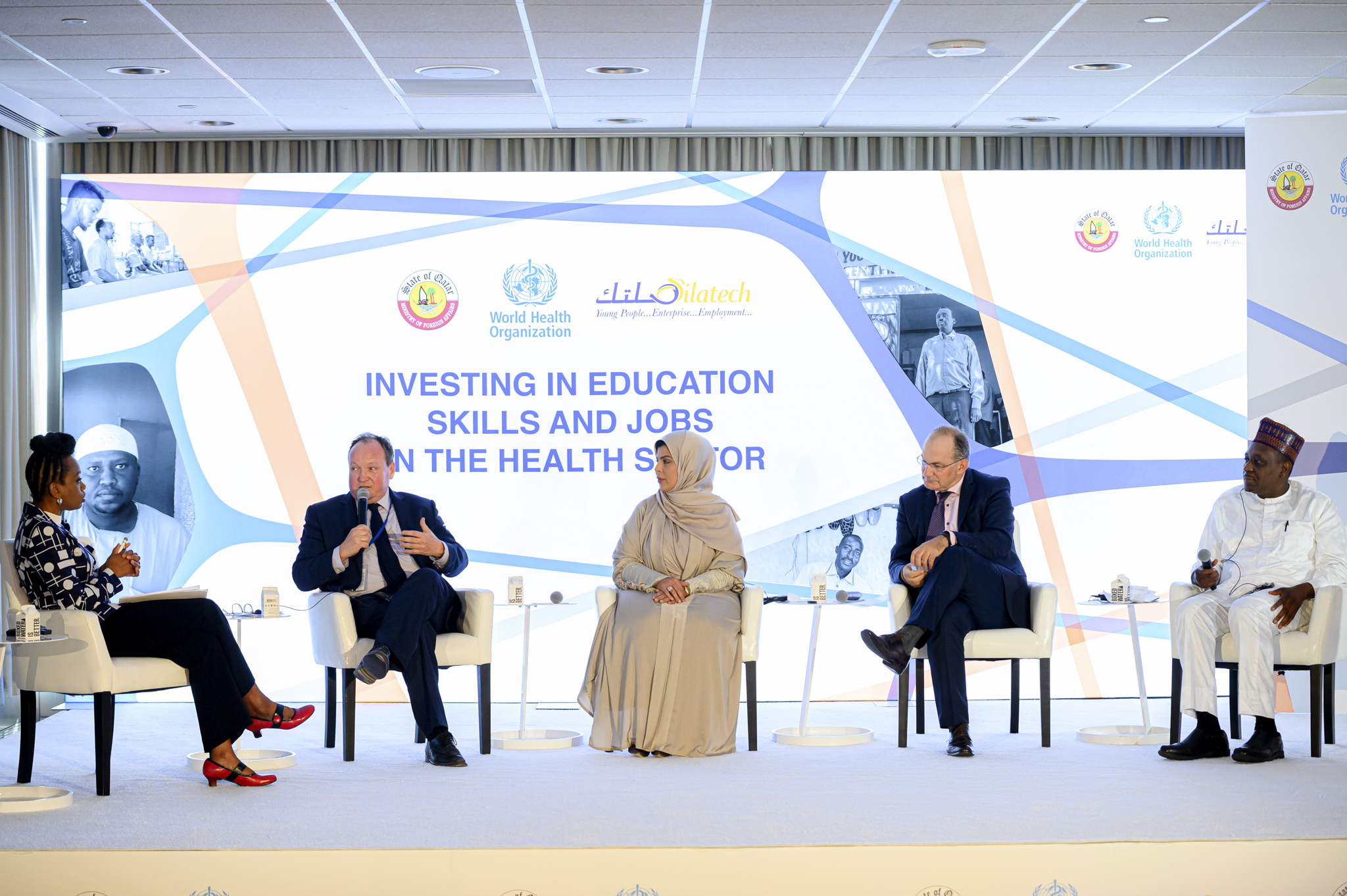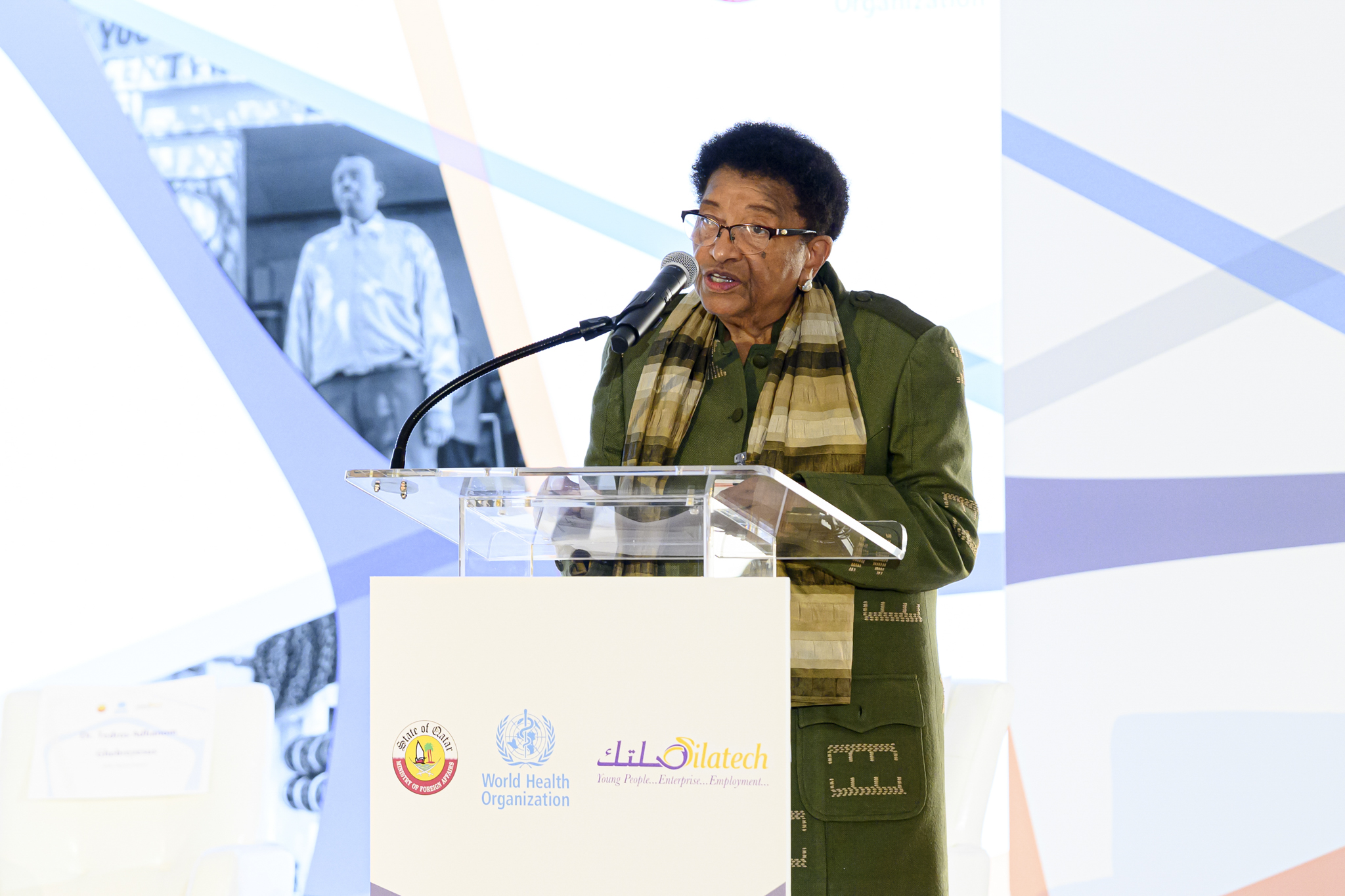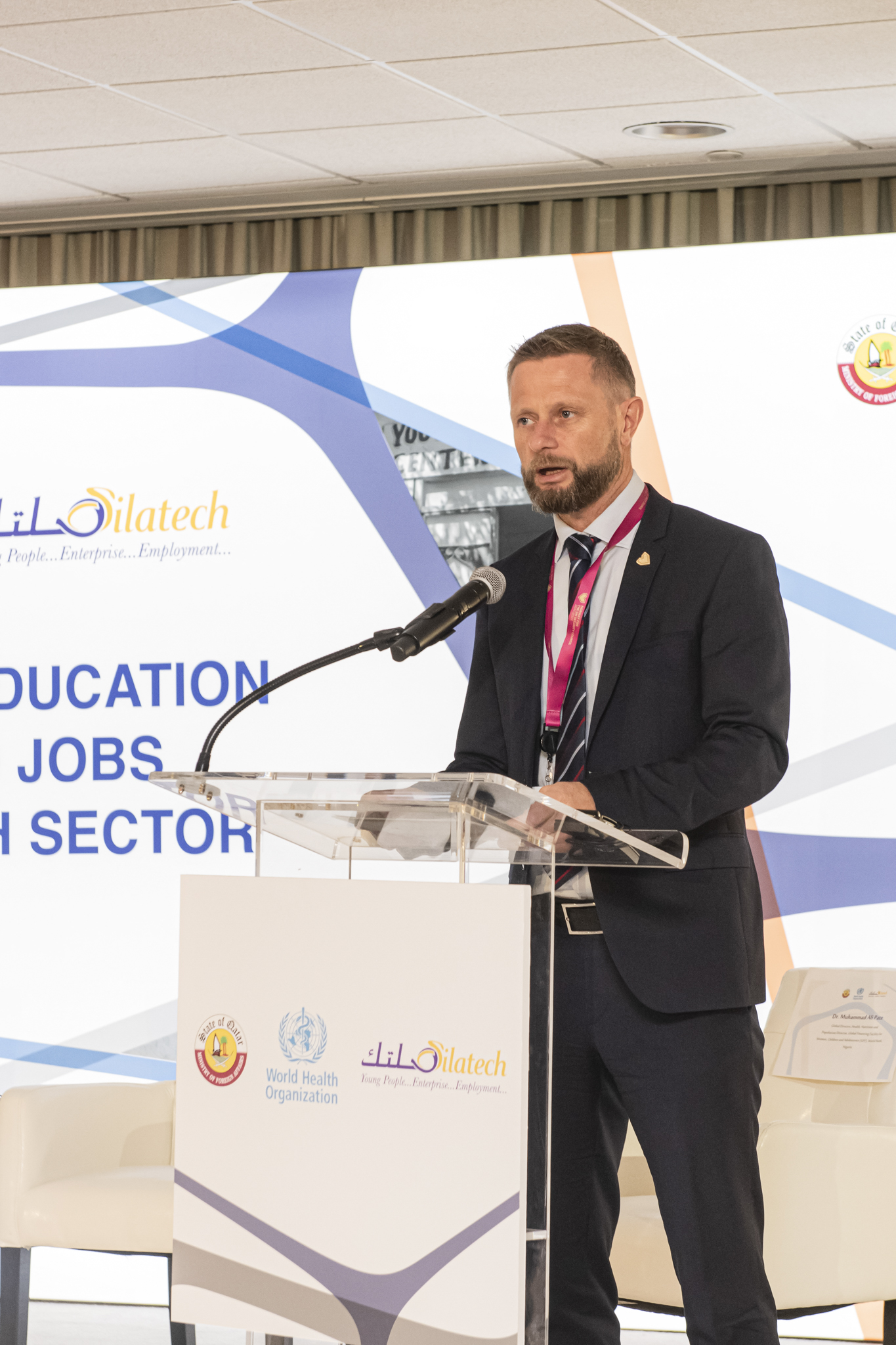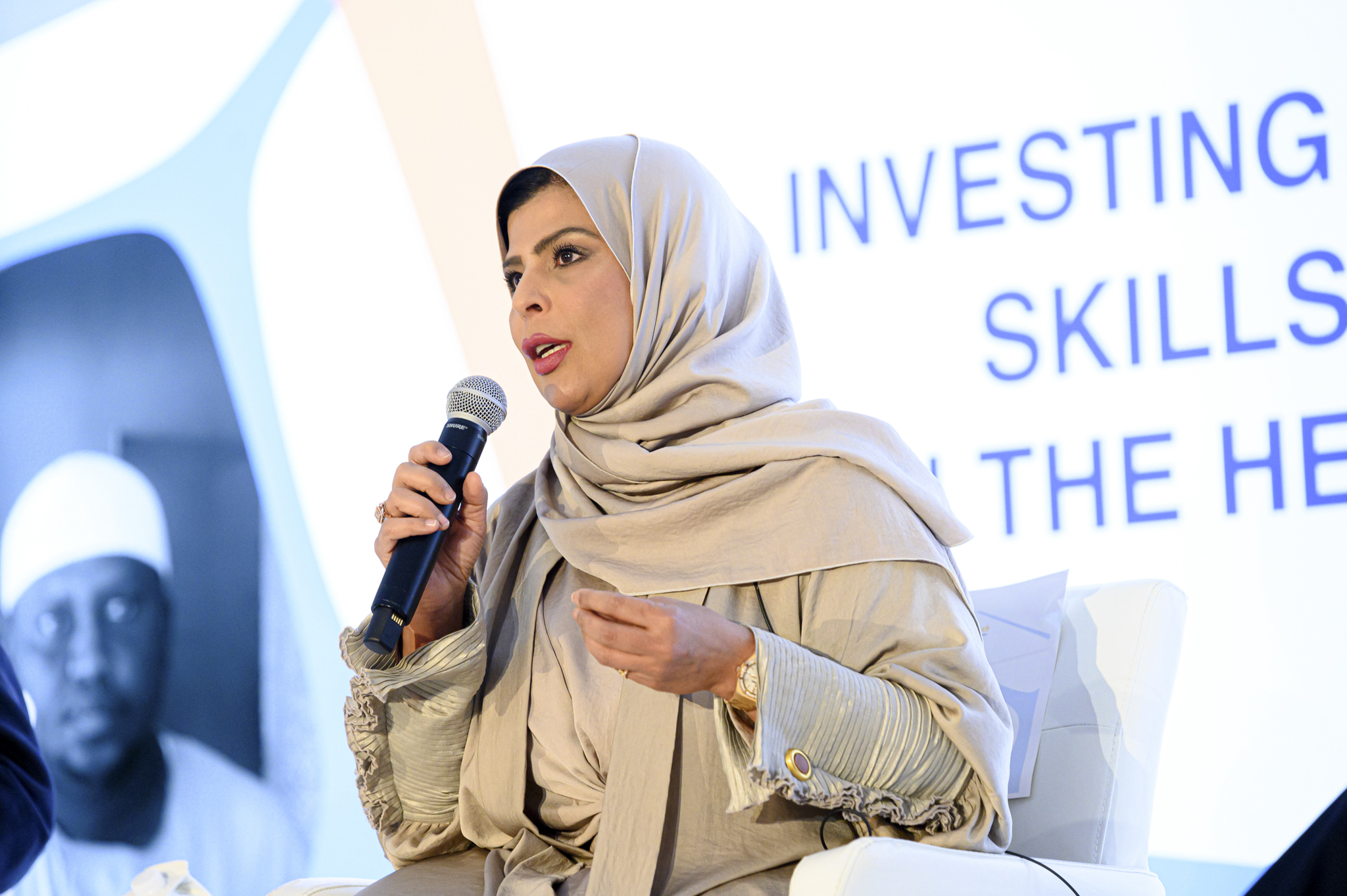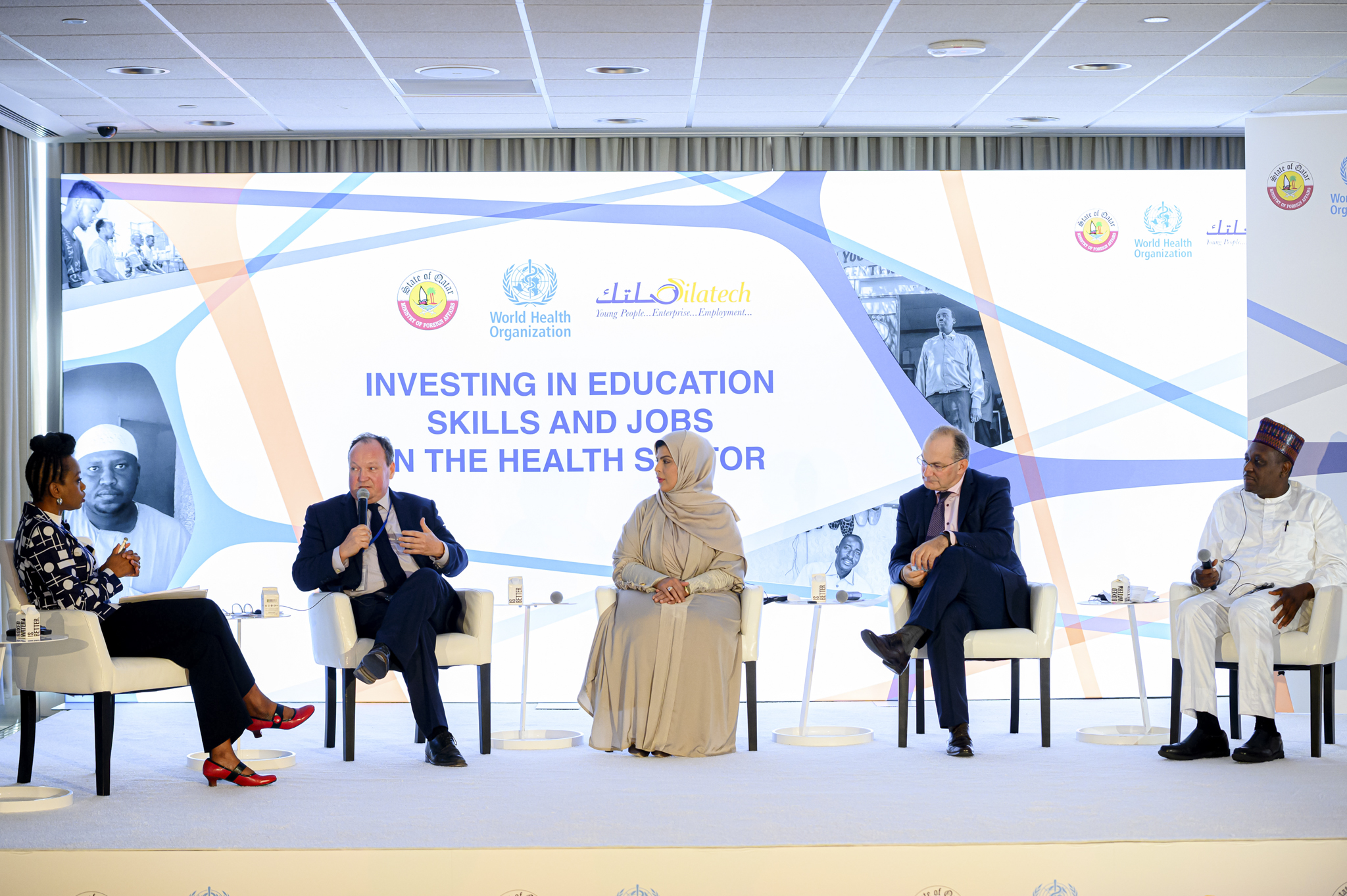23th September 2023, New York– Education Above All (EAA) Foundation, a leading global education foundation, and Silatech, an international development organisation, hosted four major side events to accelerate the achievement of the Sustainable Development Goals (SDGs), at the 78th United Nations General Assembly (UNGA) in New York.
The events brought together over 400 leaders, experts, youth, and academics, and highlighted the importance of funding education, remote work, climate change education, and AI, in providing marginalised and vulnerable communities around the world with opportunities to improve their lives. Together, these events have made significant contributions to advancing several SDGs in developing countries, including SDG 4 (Quality Education), SDG 8 (Decent Work and Economic Growth), SDG 9 (Industry, Innovation, and Infrastructure), and SDG 13 (Climate Action).
The events were:
- “The Precarious Role of AI in the Effort to Provide Inclusive, Equitable Access to Higher Education for the Most Marginalised”, hosted by EAA Foundation’s Al Fakhoora programme, the Qatar Fund for Development, and the International Institute of Higher Education, 15 September 2023.
Notable speakers included the University of the Andes (Colombia), Rutgers University and Schmidt Futures, and Jeffrey D. Sachs from the Centre for Sustainable Development, Canada. Professor Sachs emphasised that the biggest hurdle to universal education was a lack of funding, and stated: “Education is the paramount investment for society. Listen to Her Highness Sheikha Moza bint Nasser: ‘Education Above All.’ Mean it.”
- “Investing in climate change and education for a greener future,” hosted by EAA Foundation’s Reach Out To Asia (ROTA) Programme and Silatech on 16 September 2023.
Speakers included Mr Ahmed Mohammed Al Sada, Assistant Undersecretary for Environmental Affairs, Ministry of Environment and Climate Change, Qatar; Mr Ayman Cherkaaui, Director, Mohammed VI Foundation for Environment Protection Kingdom of Morocco; Mr. Asif Saleh, Executive Director, BRAC; Mr. Birihgton Kaoma, Global Director, SDSN Youth; Ms. Setafnia Giannini, Assistant Director-General for Education UNESCO; Mr. Taha Bawa, Co-founder and CEO, Goodwall; Mr. Kevin Frey, CEO, Generation Unlimited, UNICEF and Ms. Vicky Aridi, Program Manager, Youth Economic Opportunities, 2030.
According to UNICEF’s Frey: “Climate education needs to culminate in young people taking climate action.” He stressed that knowledge should be a catalyst for tangible, youth-driven initiatives in the fight against climate change. This was supported by Mr. Asif Saleh who commented, “In every young leader lies the potential to drive change.”
Outcomes and recommendations from this session included: transparent financing for climate change education; direct funding for local youth groups and green entrepreneurs (ecopreneurs); reduction of costs for technological tools, and public-private-non government-youth partnerships; engaging youth as key stakeholders in decision and policy-making related to climate change education; and identifying innovative solutions that recognize local and indigenous knowledge.
- “Unlocking Potential: The Power of Remote Work in Economically Empowering Vulnerable Youth”, hosted by Silatech in collaboration with the International Labour Organization (ILO) and the Permanent Mission of Qatar to the United Nations on 17 September 2023.
This High-Level Panel advocated for the recognition and mainstreaming of remote work and freelancing as decent work and career innovations. Keynote Speakers included Special Representative of the ILO to the UN, Ms Cynthia Samuel-Olonjuwon, Islamic Solidarity Fund for Development Director General, Dr. Hiba Ahmed, BRAC Executive Director Asif Saleh, Microsoft, Global UN, and International Development Lead, Alexandre Pinho and UNICEF Generation Unlimited Brazil beneficiary Winner Happy de Assis Cajueiro.
The session recommended that remote work be recognized and mainstreamed and that vulnerable communities should have support to access remote work opportunities, also calling on the private sector to invest in infrastructure and technology to support remote work and put in place online security safeguards.
- “Elevating Education as a Win-Win for the SDGs”, by EAA Foundation, at the SDG Pavilion on 19 September 2023.
EAA Foundation’s CEO Fahad Al-Sulaiti unpacked efforts by stakeholders to unlock the potential of young people to thrive in the future world of work and bridge the digital divide using tools to improve learning and increase capacities to navigate the future. Participants included HE David Sengeh, Chief Minister Sierra Leone, Former Minister of Education, SDG4 High-Level Steering & Transforming Education Summit Advisory Committee Co-Chair, Mr. Robert Jenkins, Global Director, Education and Adolescent Development, UNICEF, Dr. Luis Benveniste, Global Director for Education, World Bank, and Dr. Hiba Ahmed, Director General, ISFD, Mr. Marcos Neto, Director of Sustainable Finance Hub, UNDP, and Manos Antoninis, Director of the Global Education Monitoring (GEM) Report, among others.
Roundtable discussants acknowledged the EAA Foundation’s contribution and importance and ongoing work supporting education in the developing world. The discussions emphasized the need for innovative solutions in education financing, including community involvement, private-sector partnerships, and exploring new funding sources.
Each event included clear outcomes that the partners would take forward. Follow-up meetings will be held at the WISE Summit, a biennial event fostering innovation in education, to be held in Doha, Qatar, on 28-29 November 2023.


